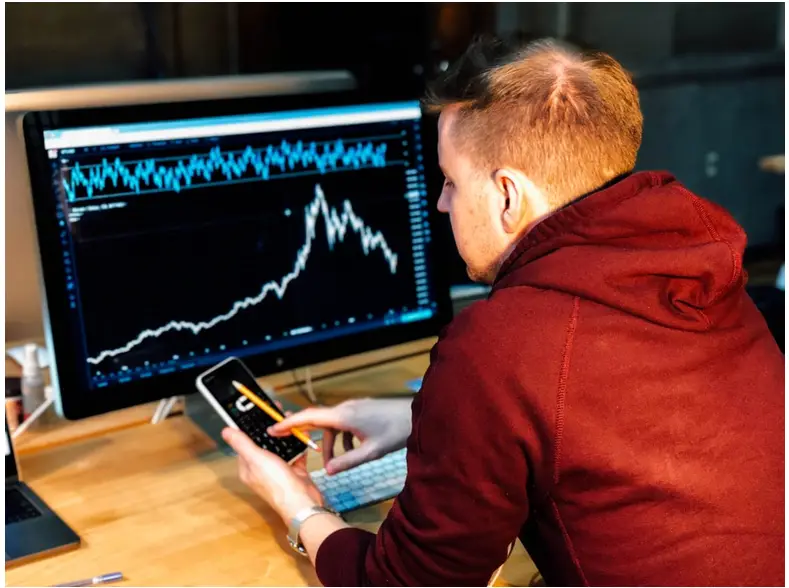The following is a guest post.
Why Is It Necessary To Discipline Your Daily Trade Routine?

Becoming a professional forex trader takes years of commitment and hard work. Your life pretty much mandates that you set some parameters and checks in your daily life that cohesively facilitates your actions and responsibilities.
One of them is setting up a daily regimen or routine that ensures your firm grasp on the foreign exchange market. You might be handling more than just your own account, and so additional duties mean that you monitor the trading charts religiously.
According to a recent study by Compare Forex Brokers, there was a daily turnover of $6.6 trillion in 2019, while the total value of the forex industry increased and reached $2.409 quadrillion dollars in 2019.
This makes it indefinitely the biggest financial market in the world that even exceeds the global stock market. Furthermore, some of the largest forex regulators in the world include the likes of ASIC, CFTC, CYSEC, FCA, and NFA.
With that out of the way, let’s take a quick look at some of the reasons as to why you need to discipline yourself to follow a daily trade routine for forex trading.
1. Cashing-in on an Opportunity
While trading lasts throughout the day and night, forex traders can burn themselves out quickly if they decide to watch the market around the clock. This is why many of them follow various economic calendars as well as use their good judgement based on the release of data.
A daily regimen can be crafted around the understanding of movements during different market hours, and this can help them seize opportunities rather than let them slip by.
However, it is pretty obvious that no one can stay up all night or watch the market for 24 hours straight. What a daily routine can do is provide them with a stronger chance of realizing profits within a schedule that is workable, realistic, and achievable.
International forex trading is divided into four major time-zones, namely: London, New York, Sydney, and Tokyo. The best time depends on which currency pairs you are interested in and the overlaps of trading times amongst the four mentioned business hours.
2. Identifying Daily & Weekly Targets

If you think you can simply glue your eyes to a dozen monitors all day long to cash-in on substantial moves then think again. You will only end up hurting your health the most. The right approach, however, is to keep notes and create a daily routine where you can dedicatedly practice your trading without interruptions.
This will help you comprehend daily, weekly, and monthly movements. Setting goals and objectives is extremely important as they help you understand and measure your own performance. They will also keep you motivated to trade daily without compromise and stick to a trading plan.
Here are some examples of good trading goals:
- Process-oriented goals are better than outcome-oriented goals as they help you keep the right mindset.
- Risk control is extremely important; a defensive strategy would always seek to protect your trading capital. The 2% rule is common and allows you to risk 2% of trade capital on each transaction.
- Mental and physical health goals are extremely important as they help you sustain your peak performance.
- Profit oriented goals keep you satisfied and closer to sanity. If you make your profit goals of the month, relax!
3. Learning & Mastery of the Profession

Having a daily and fixed routine will keep helping you to improve your skills, judgement, and understanding about the forex markets. Gradually you will learn about the following:
- Best entry and exit points.
- Dealing with reputable brokers and trading platforms.
- Investing time and developing a consistent strategy.
- Calculate your expectancy to check the reliability of your system.
- Keeping trading money separate from finances needed for living.
- Weekend analysis, along with printed records of past and current performances.
- Common forex instruments such as spot transaction, forwards, futures, swap, and options.
- Forex pairs and quotes such as USD/JPY, EUR/USD, GBP/USD, AUD/USD, USD/CAD, etc.
- Forex lots such as micro, mini, and standard lots, where micro is 1000 worth of currency, mini is 10,000, and the standard is 100,000.
4. Regular Monitoring of Markets
With a daily regimen, you would be able to monitor the market on a regular basis which will then help you to comprehend key economic factors. It will also help you to develop strategies to take advantage of trends, and any vulnerability presented.
You will also come across various forex signals, which are suggestions based on currency pairs and the best time to enter a trade usually at a specific price and time. Traders also monitor markets for their homeland currencies as it helps them in making monthly budgets and managing their expenses.
5. Studying Trends for Insights
Trends in forex can vary from upward, downward, short term, long term and even sideways. They show the tendency for prices to move in a particular direction over a period of time. Your success as a forex trader is heavily based on understanding, identifying, and acting upon such trends.
With a trading routine, you will gradually improve your comprehension regarding the various stages of such trends as well. Pupils looking for dissertation proposal help UK also study trends when trading in cryptocurrencies.
Conclusion
Forex trading is huge and is downright a science on its own accord. Summarizing what forex is and how it works is futile as it needs utmost commitment and persistence to understand the best strategies and how they can work well for you in the end.
However, through discipline and a daily trade routine, you will eventually be able to unlock the knowledge and information required for you to become a pro at forex trading.
Author Bio
Samantha Kaylee devotes herself to her duties as an Assistant Editor at Crowd Writer. This is where college and university students can acquire professional assistance from experts specializing in their subjects and topics. In her leisure time, she likes to go on cycling trips in the outdoors.
